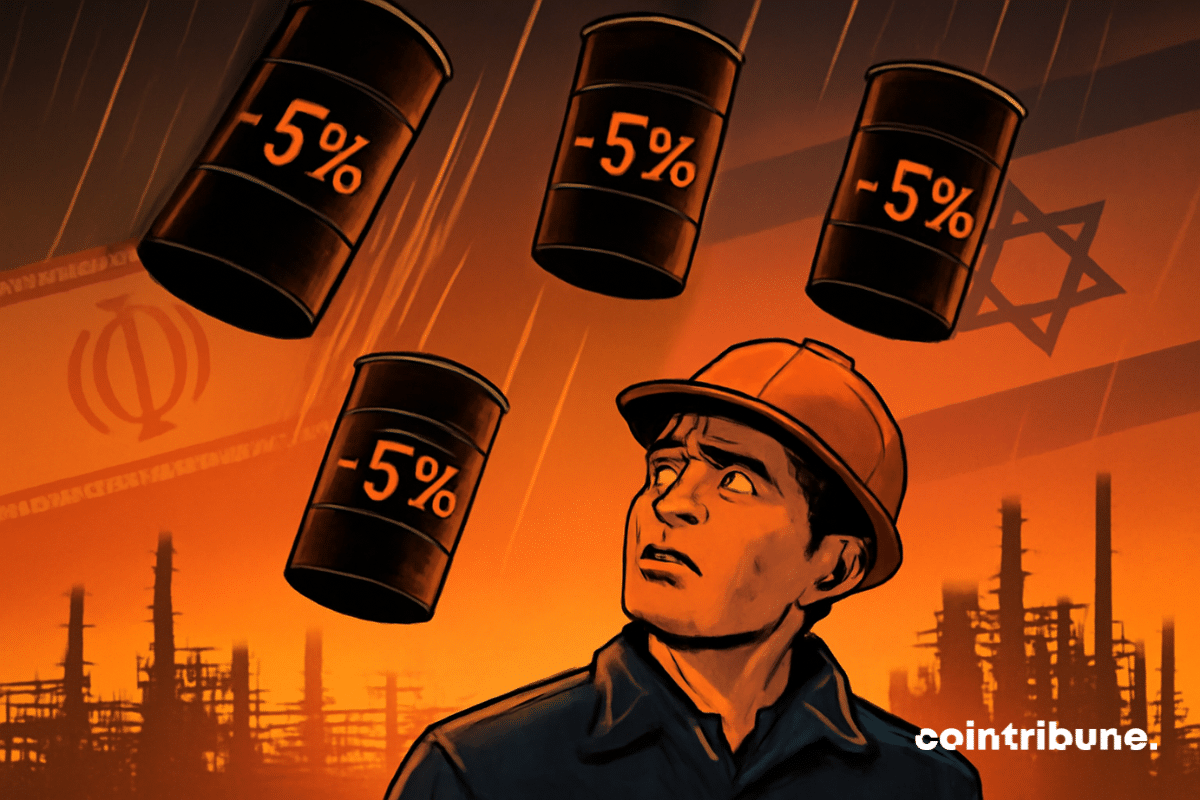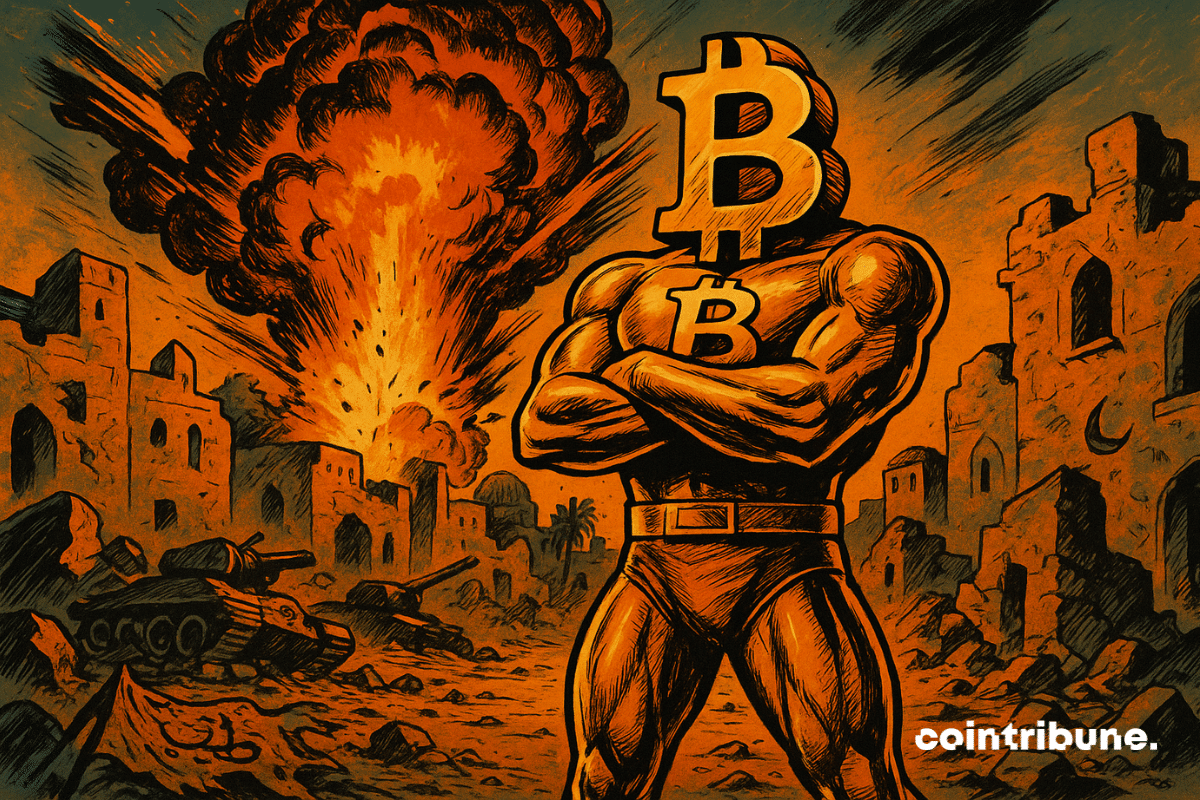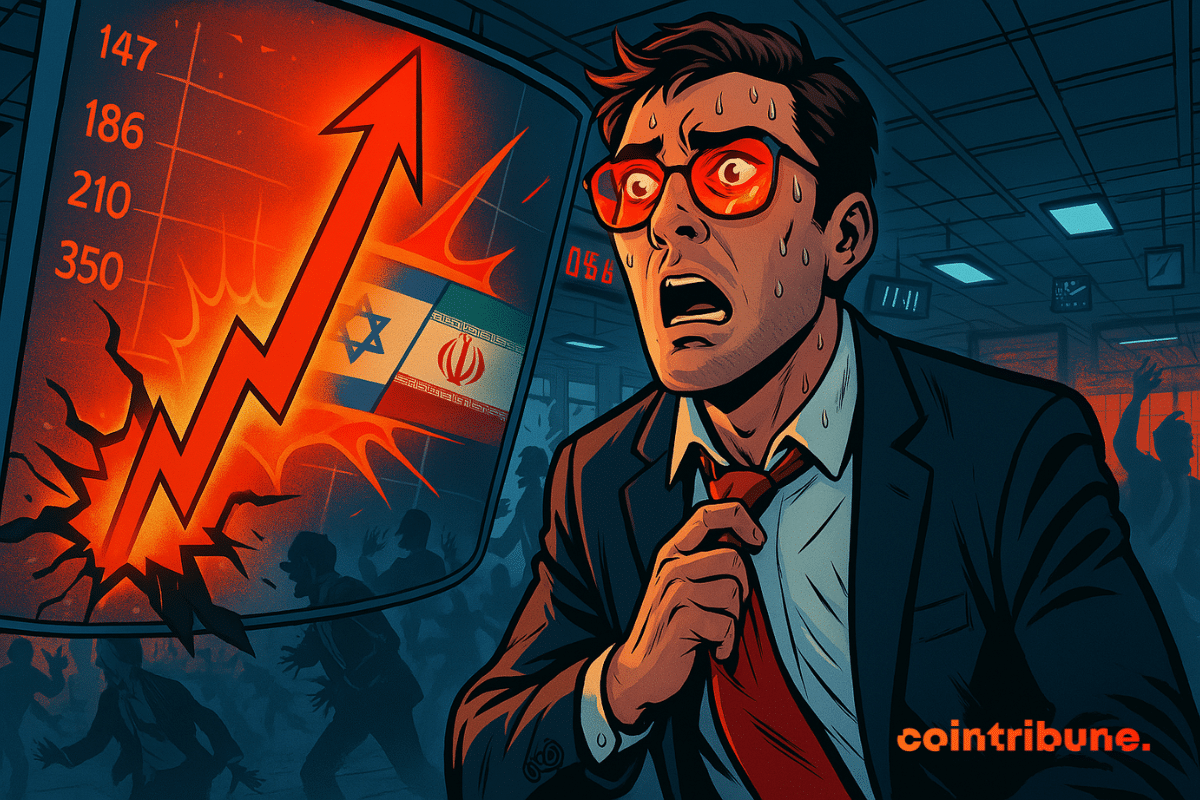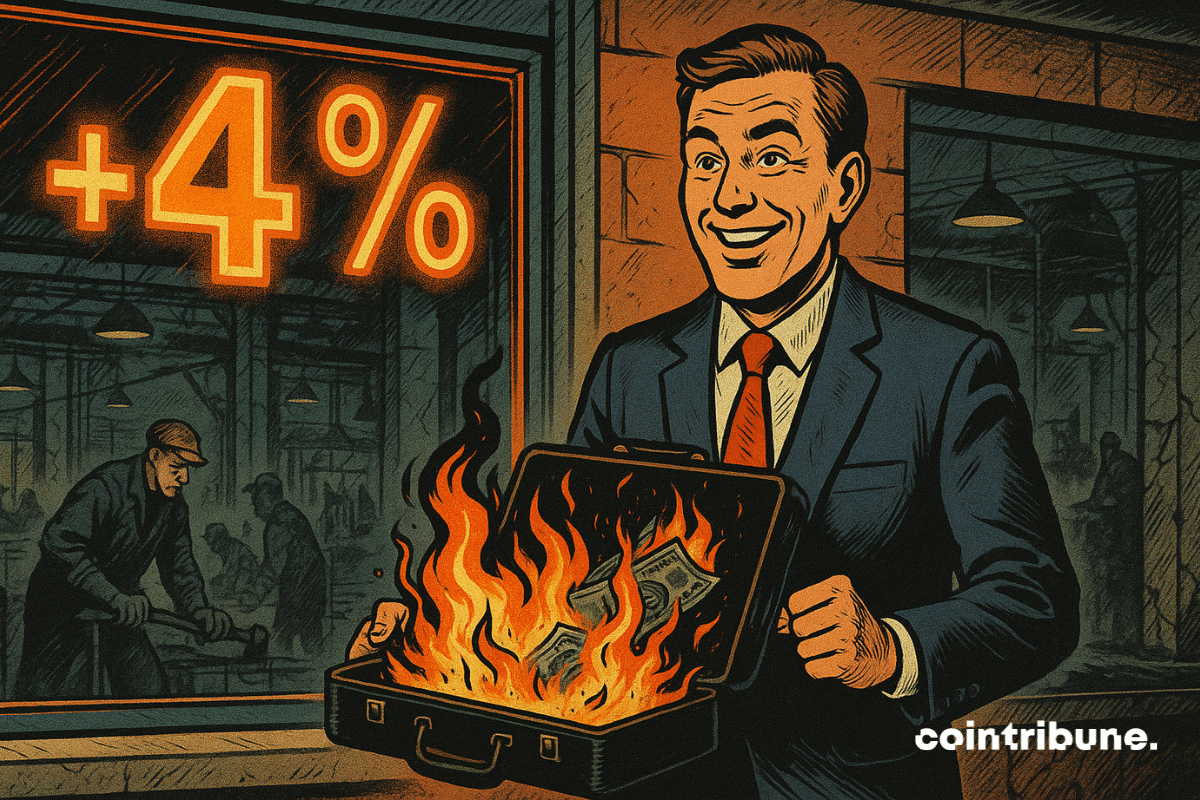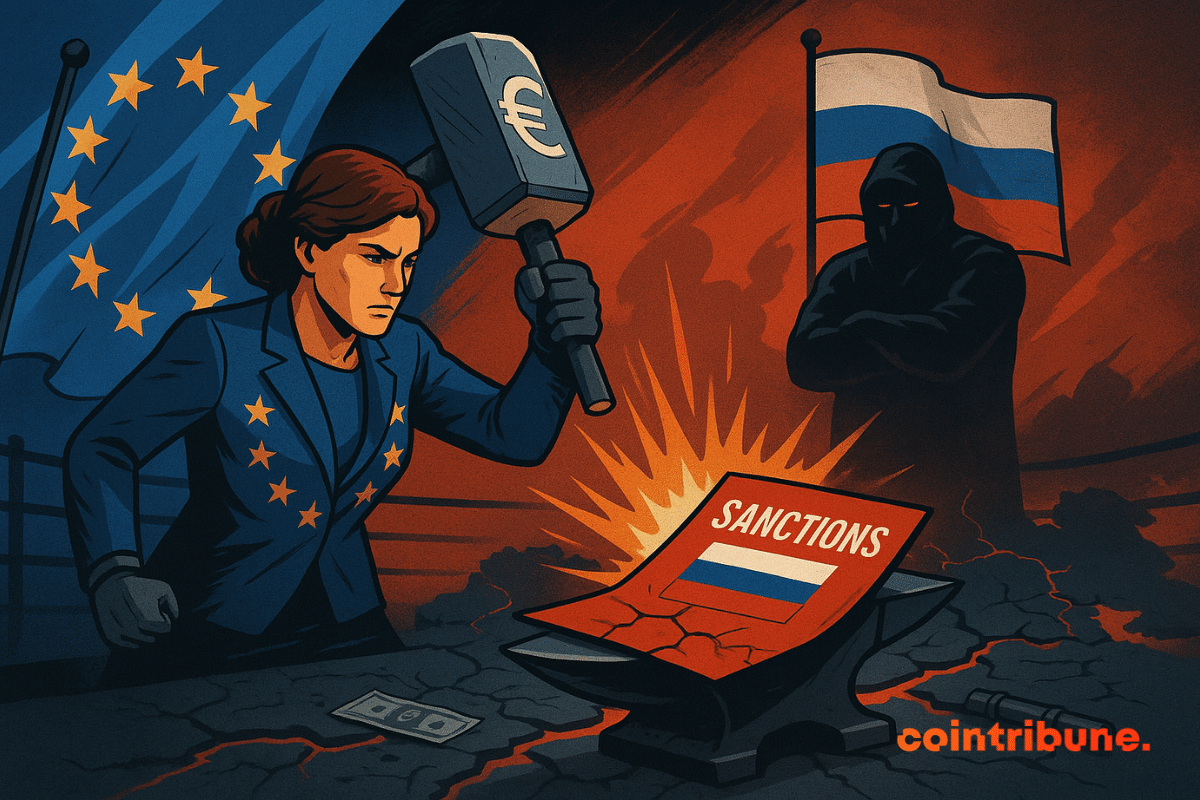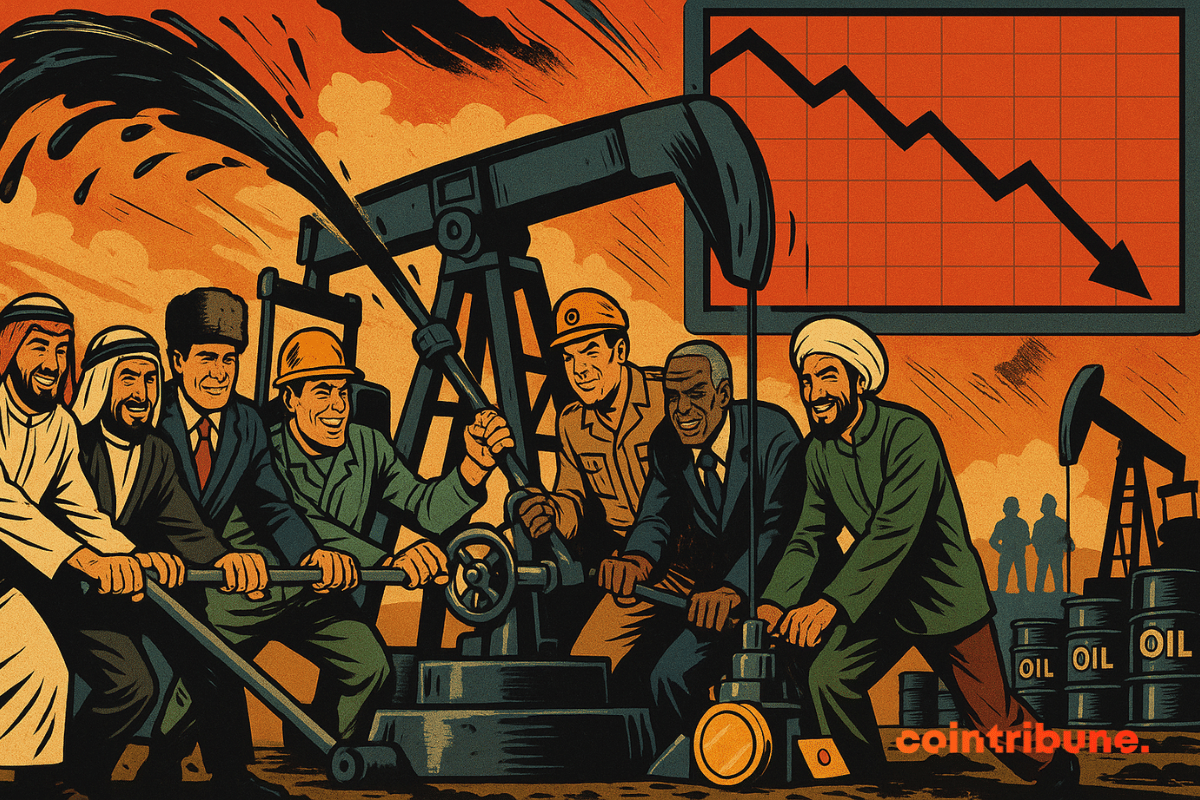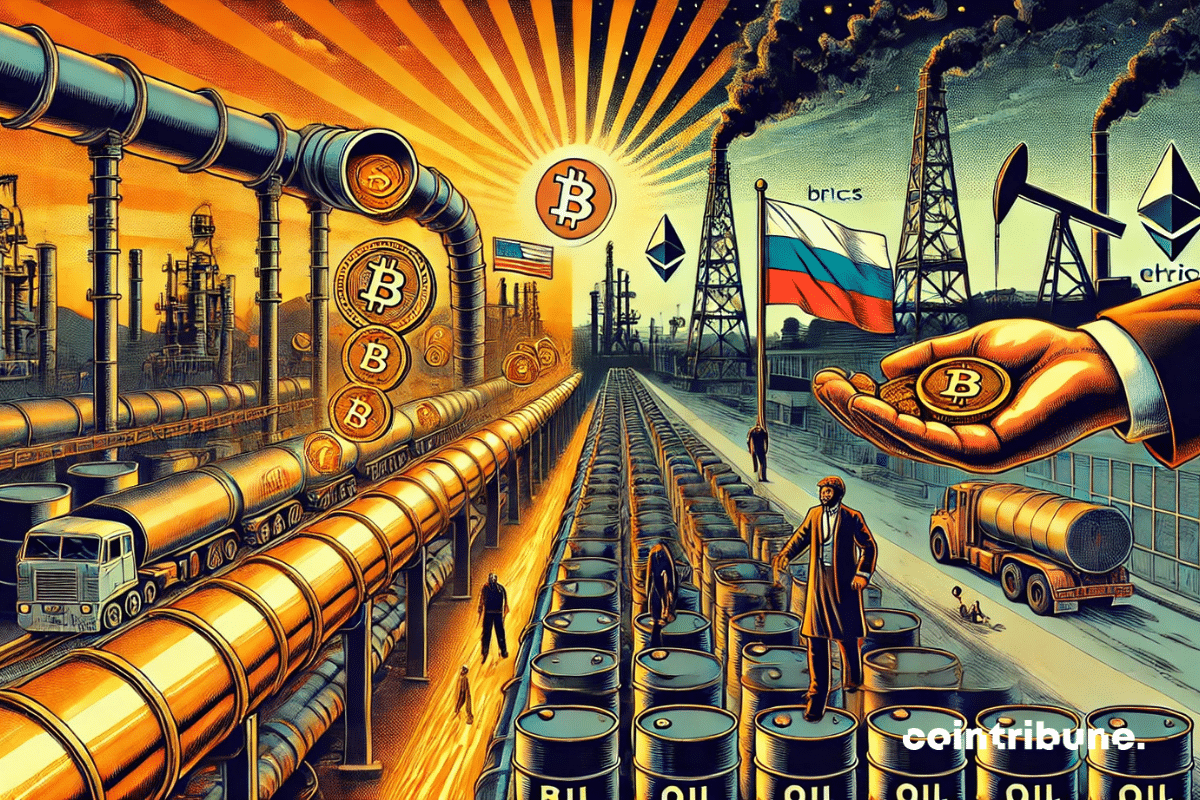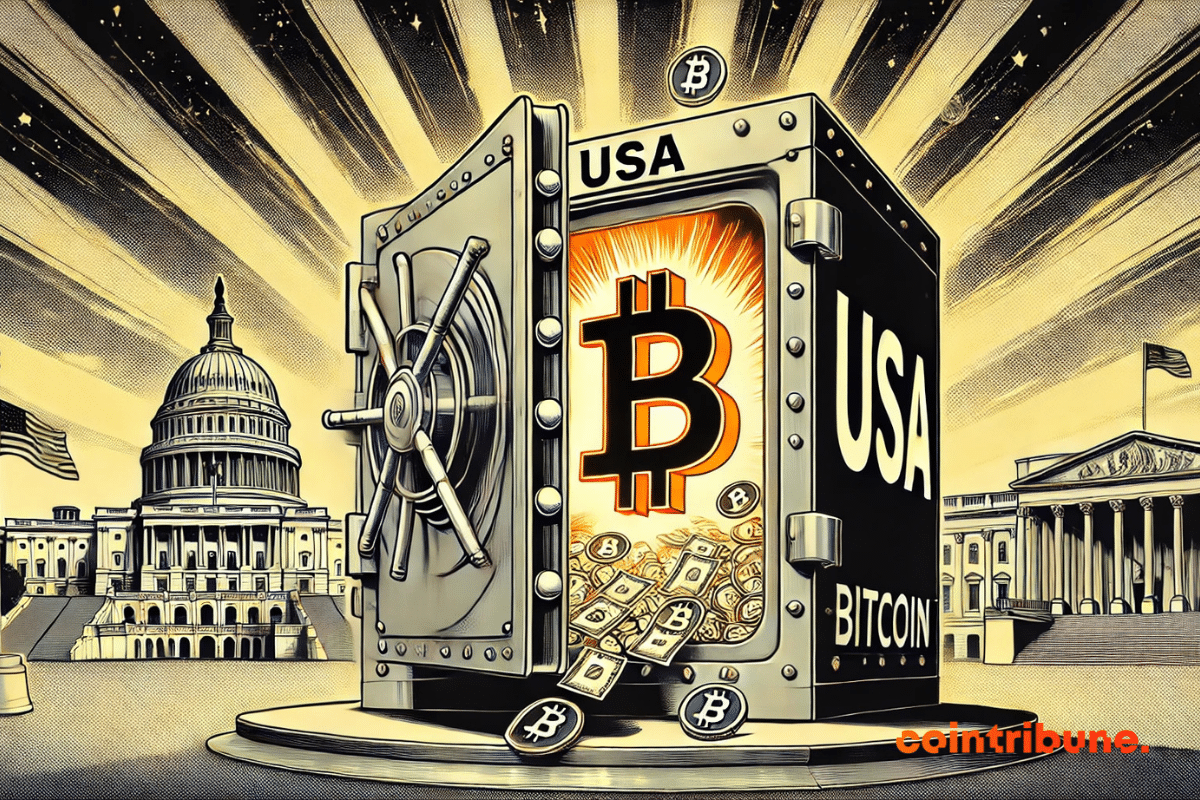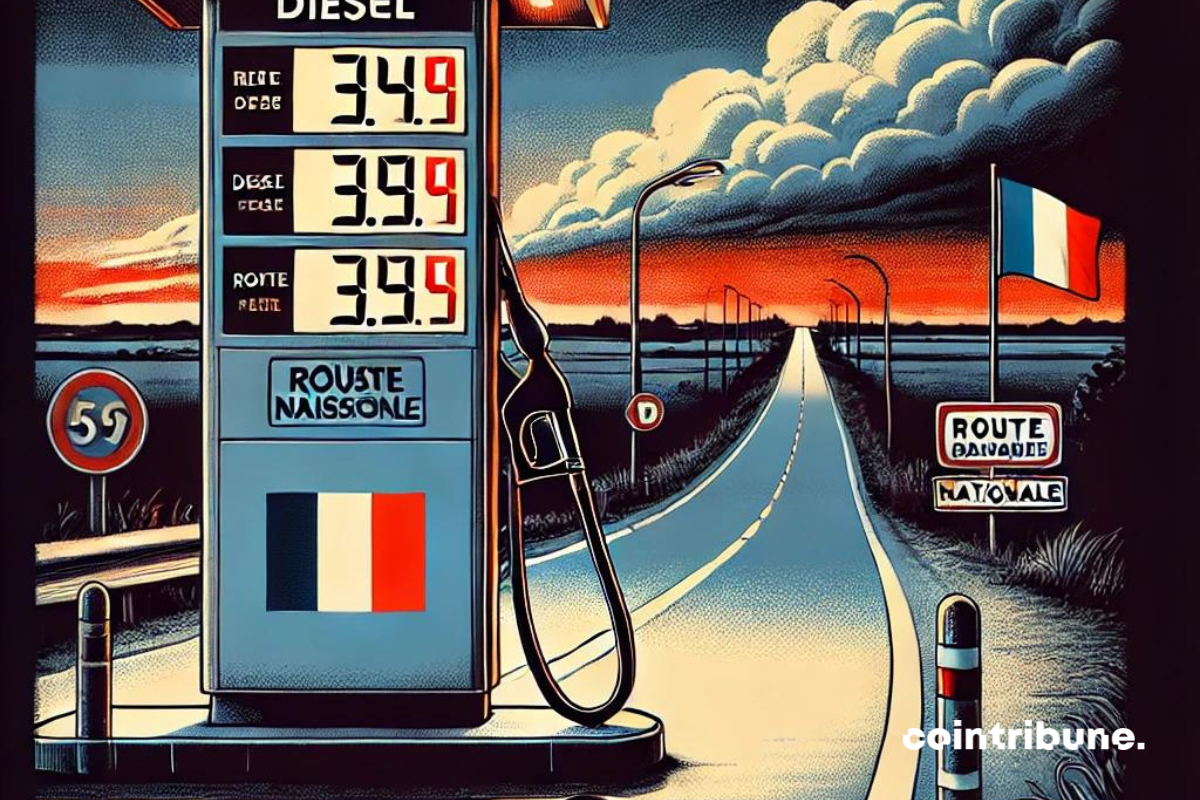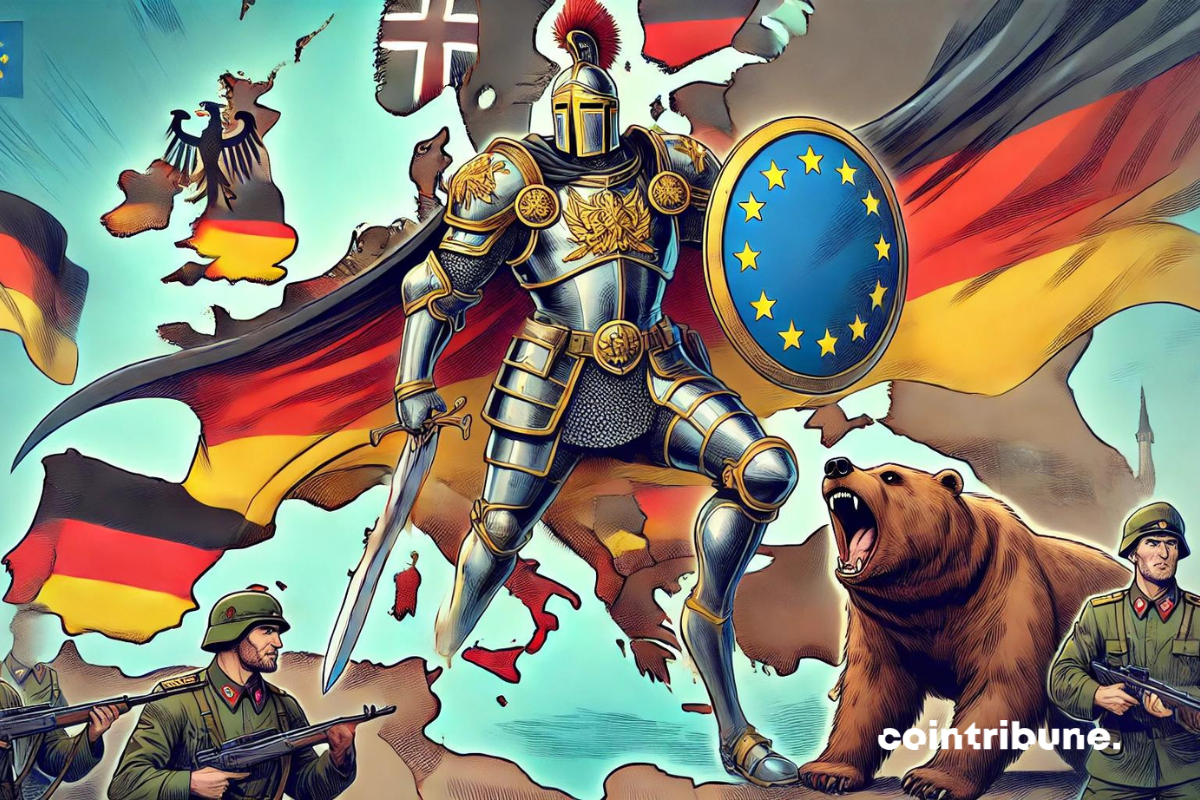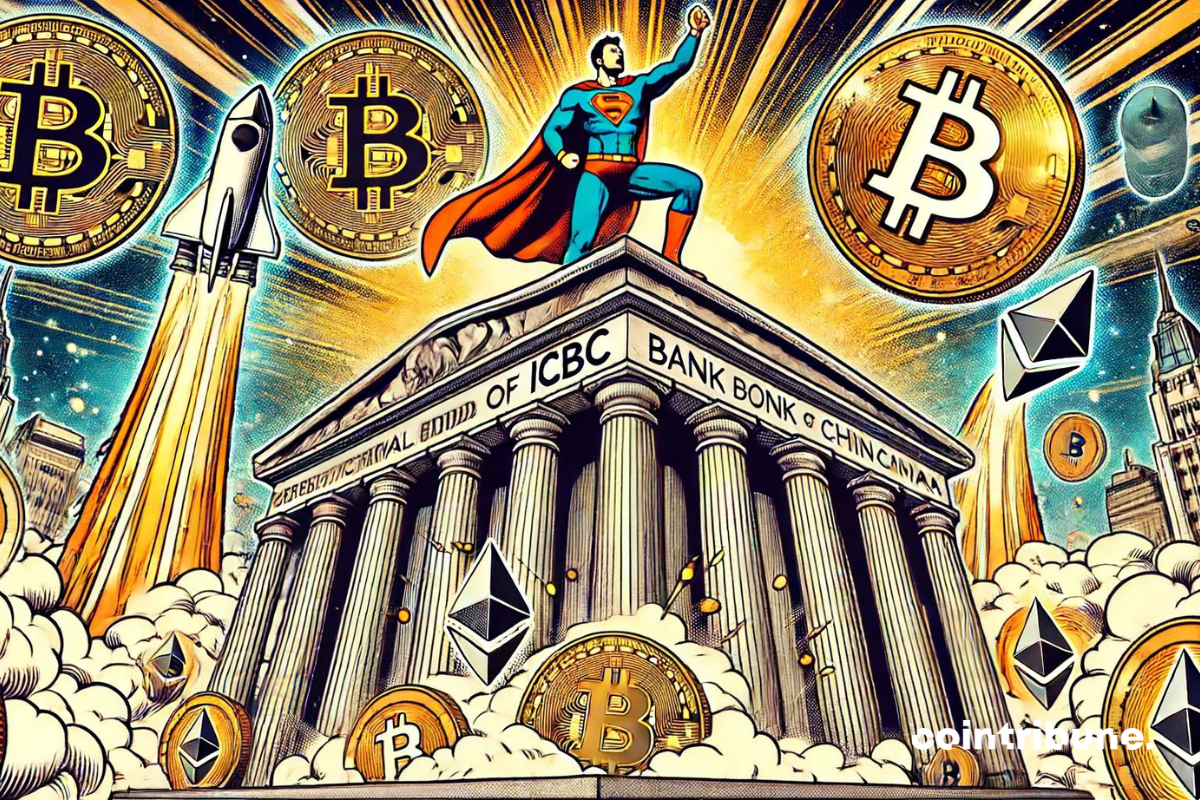Donald Trump's surprise announcement of a ceasefire between Iran and Israel has caused a real earthquake in the energy markets. Oil prices plunged by more than 5%, while global stock markets soared. Is this geopolitical calm sustainable?
Oil
As an American strike targeting Iranian nuclear sites raised fears of a regional escalation, bitcoin briefly fell below $99,000 before making a swift rebound. In less than 24 hours, the asset erased its losses, defying usual panic logics. This sequence reveals a strategic mutation: bitcoin is no longer just a speculative asset; it is becoming an indicator of resilience against geopolitical shocks.
On June 8, 2025, a tanker under American and European sanctions discreetly docked in Japan, delivering Russian crude to a local refinery. This act, far from negligible, reveals a silent fracture in the Western consensus on energy. While the G7 has been trying for two years to isolate Moscow, Tokyo prioritizes its energy security. This episode, both symbolic and strategic, could subtly reshape the lines of a transforming global energy order.
Missiles in the Middle East, markets in turmoil: while the economy catches a cold, some are making a fortune off barrels... and others prefer to flee into solid gold. Guess who is pulling the strings?
For two years, Russia has been showing an economic growth of over 4%, a figure that could pale in comparison to many European economies. Yet, behind these seemingly solid indicators, the reality on the ground is quite different: high inflation, degraded consumption, persistent shortages. The country, largely transformed into a "war economy", seems to be reaching the limits of a model based on military spending and energy rents.
Vivek Raman, co-founder of Etherealize and a former Wall Street banker, is leading an unprecedented charm offensive. He now presents Ethereum as the "digital oil" poised to revolutionize traditional financial institutions.
As the conflict in Ukraine bogs down, the European Union crosses a strategic threshold. On May 20th, Brussels adopted a 17th round of sanctions targeting previously less exposed entities: the Russian ghost fleet, a logistical pillar of oil evasion. This maneuver, synchronized with London, marks a turning point in the economic war waged against Moscow. By hardening its stance, the EU aims to weaken the opaque circuits financing the Russian military effort and maintain pressure on its foreign supporters.
As oil prices plummet and demand remains sluggish, OPEC+ surprises by announcing a massive increase in its production starting in June. Eight members of the cartel break with recent caution and reignite uncertainty in an already tense market. Behind this turnaround lies a possible geopolitical and economic turning point, between a strategy of recovery and calculated risk-taking. This decision could reshape global energy balances.
Why has debt become uncontrollable and how will Bitcoin benefit from it?
In light of the deadlock in the conflict in Ukraine, Donald Trump is changing his tone and threatening Moscow with an economic sledgehammer. The American president, who has so far been measured towards the Kremlin, is now brandishing the card of tariff sanctions on Russian oil. The stated objective is indeed to force Vladimir Putin to move towards a ceasefire. A shocking statement that fractures diplomatic balances and elicits reactions even in European capitals, at a time when the slightest tension can redefine the global geopolitical chessboard.
Russia is at a major economic turning point, burdened by surging military expenditures and an escalating energy crisis. As financial resources dwindle, the cost of the conflict in Ukraine becomes unsustainable. By 2025, rising military spending and falling energy revenues will confront the country with an unprecedented economic challenge.
In the midst of a volatility session, crude oil has seen a spectacular turnaround, driven by major geopolitical signals. This resurgence, far more than a technical rebound, fits into a broader strategic dynamic. As markets scrutinize the link between raw materials and cryptocurrencies, this development reconfigures the balances within energy markets.
In the shadow of the economic restrictions imposed by the West, Moscow is charting a new path for its energy trade. In the face of exclusion from the international financial system, Russia has found an alternative solution: the use of Bitcoin (BTC) and Tether (USDt) to bypass sanctions and ensure the continuity of its oil exports.
The United States has taken the bull by the horns both economically and geopolitically. Many things are going to change and, in the end, bitcoin will find its way.
Oil markets have been caught off guard. While traders expected a delay in the increase of oil production by OPEC+, the cartel ultimately confirmed that it would return 2.2 million barrels per day to the market starting in April. This decision immediately triggered a brutal price reaction: Brent crude fell to $70.60, its lowest level in five months. This strategic choice, which comes after several successive delays, profoundly alters the balance of supply and demand in an already uncertain economic context.
A few days before Donald Trump's inauguration, the outgoing American administration is tightening its sanctions against Russian oil, pushing Brent prices above $80. This new offensive directly targets two Russian giants in the sector and a fleet of nearly 200 ships.
Initially, Bitcoin (BTC) mining was an activity practiced exclusively by a handful of insiders. However, over time, more and more people began to engage in it. As the phenomenon grew, mining farms started to emerge. In this article, we will explore what these platforms are, how they operate, and why they are interesting. We will also look at how they are powered, whether they are profitable, and what their future holds.
As global markets focus their attention, oil continues to tumble, confirming a 5% drop over the past month. This price decline, driven by complex factors, exposes the vulnerabilities of a strained sector.
As global markets question the future of energy resources, the price of oil is experiencing a marked decline. This Monday, both Brent and WTI prices show a significant drop, a trend that worries investors as the Organization of the Petroleum Exporting Countries (OPEC) and the International Energy Agency (IEA) are set to release their monthly reports on the state of oil markets. At the heart of this news is the global economic situation, influenced by an uncertain recovery in China and U.S. energy policies, which fuels a volatile and complex dynamic for the months to come.
In 2023, 78% of Russian crude oil exports were directed towards two Asian giants: India and China. A radical redistribution that sharply contrasts with the situation in 2021, when these two nations absorbed only 32% of Russian energy flows. In the face of Western sanctions aimed at strangling its energy sector, Russia is reinventing its trade circuits with its BRICS partners. This strategic realignment towards the Asian axis reflects a major shift in the global energy dynamics, prompting the BRICS bloc to accelerate its efforts to detach from the Western-dominated financial system.
After a difficult day on Monday, the S&P 500 rebounded on Tuesday, benefiting from the drop in oil prices. This rebound was well received by stock investors, who had been concerned about the recent increases in energy prices and bond yields.
Saudi Arabia, a heavyweight in the oil sector, is making headlines with a new price increase for oil buyers in Asia. This decision comes amid heightened volatility, exacerbated by geopolitical tensions in the Middle East and uncertainties surrounding global energy demand.
Stock markets are reacting to the rise in oil prices, driven by the Federal Reserve's interest rate cuts.
Venezuela is seeking to join the BRICS group by leveraging its vast oil reserves. This move underscores the country's geopolitical ambitions and its aspirations to reshape its international alliances.
As international tensions and economic fluctuations shape the daily reality of global markets, French motorists are witnessing a surprising development: the price of diesel, the primary fuel of the roads in France, has reached its lowest level in over a year. In a context where inflation erodes purchasing power and every penny counts, this unexpected drop is a ray of hope for millions of consumers. But behind this apparent decrease, what economic mechanisms are at work? Which global factors influence pump prices, and above all, how long might this respite last?
As Maduro seems to have orchestrated a massive election fraud to stay in power, Venezuela tragically marches towards total and imminent collapse.
As Trump is likely to win the American elections, the United States could then disengage from NATO.
The new expansion of BRICS into Southeast Asia could transform the global energy landscape. According to a recent analysis by Rystad Energy, the alliance could trigger a $100 billion increase in the oil industry by 2028. This development is generating a lot of interest in the context of redefining global economic dynamics.
Russia's oil revenues are experiencing a spectacular surge despite severe economic sanctions imposed by the United States. In June, oil and gas revenues soared to $9.4 billion. This unexpected performance highlights Russia's economic resilience and underscores the growing role of the BRICS bloc in the global energy landscape. While the sanctions aimed to weaken Moscow, Russia has adeptly navigated these obstacles to redefine the dynamics of the international oil market.
The world of cryptos has just reached a new milestone: the Industrial and Commercial Bank of China (ICBC), the world's largest bank in terms of assets, recently compared Bitcoin to digital gold and Ethereum to digital oil. This statement, coming from a leading financial institution, marks a significant recognition of the importance and potential of cryptocurrencies in the current global economy. By highlighting the unique qualities and distinctive roles of these two digital assets, the ICBC sheds light on their growing importance in an ever-evolving financial landscape.
